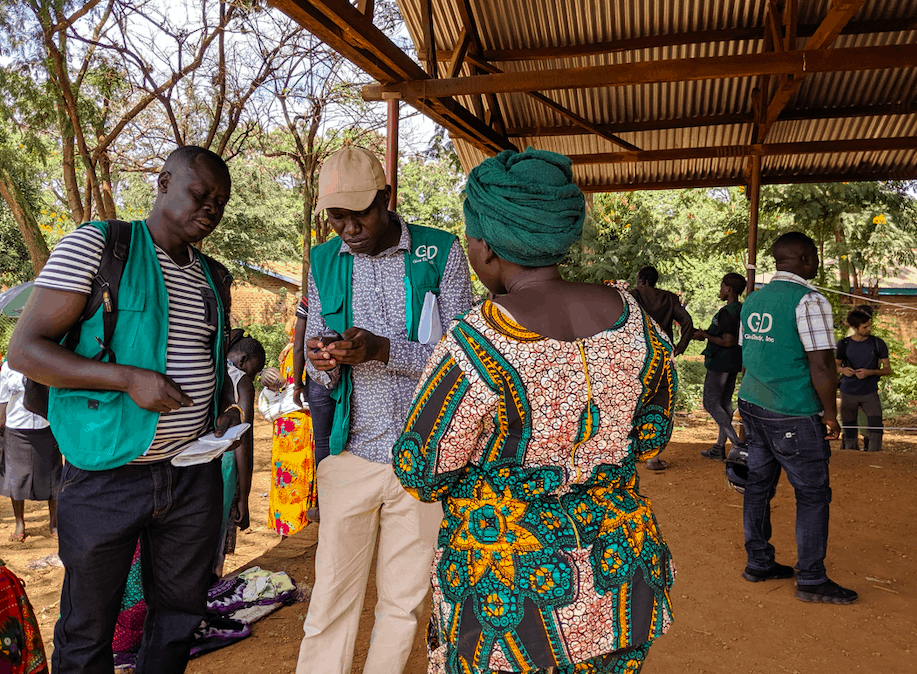How two GIF investments are giving refugees autonomy and purpose.
Jun 20, 2024
Today is World Refugee Day, the international day to honour people who have been forced to flee as a result of persecution, conflict, violence, human rights violations or events seriously disturbing public order.
Forced displacement surged to historic new levels across the globe last year, according to the 2024 flagship Global Trends Report from UNHCR, the UN Refugee Agency.
The rise in overall forced displacement – to 120 million by May 2024 – was the 12th consecutive annual increase and reflects both new and mutating conflicts and a failure to resolve long-standing crises. The figure would make the global displaced population equivalent to the 12th largest country in the world, around the size of Japan’s. Some 1.5 percent of the world’s population is displaced, double that of a decade ago.
The largest increase in displacement figures came from people fleeing conflict who remain in their own country, rising to 68.3 million people according to the Internal Displacement Monitoring Centre – up almost 50 per cent over five years.
The number of refugees, and others in need of international protection, climbed to 43.4 million when including those under UNHCR and UNRWA’s mandates. The vast majority of refugees are hosted in countries neighbouring their own, with 75 percent residing in low- and middle-income countries that together produce less than 20 percent of the world’s income.
Refugees are increasingly living in refugee camps and settlements for prolonged periods: about two-thirds of refugees have been displaced from their home country for five consecutive years or more.
As refugees seek safety they are often robbed of their dignity and autonomy, both by the circumstances of their estrangement and by NGO and governmental support that is frequently short term, conditional and basic.
Approximately USD 3.4 billion of international aid is spent supporting long-term refugees through various forms of short-term, in-kind assistance, rather than on longer-term options with potential to help refugees improve self-sufficiency and build sustainable livelihoods.
Refugees who have been deprived of choice by being forced to flee their home countries are then confronted with a lack of choice over basic areas of their lives such as food and shelter, or with limited independence from small cash transfers.
The process of being displaced is traumatic in itself, and the psychological impact is only made more pronounced by support which deprives refugees of dignity and autonomy, and through the insecurity and uncertainty of short term aid.
Two GIF investments go beyond this short term practical aid into supporting refugees to claim back purpose and autonomy.
GiveDirectly has pioneered a model of large lump-sum cash transfers for poverty alleviation, as an alternative to traditional short term aid.
They adapted the model to refugee settings, with the aim to test whether large lump-sum cash transfer, as opposed to traditional forms of aid, can enable refugees to jump start a better life and build sustainable livelihoods.
GIF provided a $2.1m Test and Transition grant to GiveDirectly in 2019 to contribute to their refugee programme in the Kiryandongo Refugee Settlement. This investment enabled GiveDirectly to deliver cash transfers of approximately $1,000 to 14,000 refugee and host community households, and undertake a randomised control trial to evaluate the impact of the programme.
The results from the randomised evaluation were released in July 2022, showing significant impacts on monthly consumption, assets, business ownership and review for businesses, as well as psychological well-being.
Overall cash transfer recipients increased their consumption by 11% per month compared to those who did not receive the transfer, with large increases in expenditure on food consumption. The value of assets owned increased by 60% on average.
The results show that along with benefiting refugees’ quality of life the cash was used with long term aims, allowing people to purchase assets, start businesses and take steps to increase incomes.
Talent Beyond Boundaries (TBB) is another organisation which works to improve long term outcomes for refugees. Their aim is to create new pathways for refugees to access skilled employment in safe countries by working with private sector employees.
Through employment, TBB’s goal is for refugees to gain access to safe countries and regain self-reliance.
GIF supported TBB early on in its journey with a $230K grant aimed to place 20 refugees located in Jordan and Lebanon in skilled employment and to secure legal work permits and visas for them in Canada and Australia.
Our investment also aimed to prepare the model for scale, as well as to disseminate evidence and practical learnings on labour mobility for refugees.
As of March 2023, TBB has unlocked displaced talent visas with seven countries, secured a migration solution via a displaced talent visa pathway for over 1.7K people and worked with 232 employers.
GiveDirectly and Talent Beyond Boundaries take a holistic approach to supporting refugees, with the aim not just to sustain displaced people but to give them the tools to thrive and build new lives in safe countries.
The practical impact of this is that those supported will be able to live better lives and gain independence separate from aid organisations or governmental support.
But equally importantly, the psychological impact of having choice and independence are immeasurable. Both innovations treat refugees not just as victims but as full people who can make responsible choices about their own lives, which should be a bedrock principle of all international aid.
